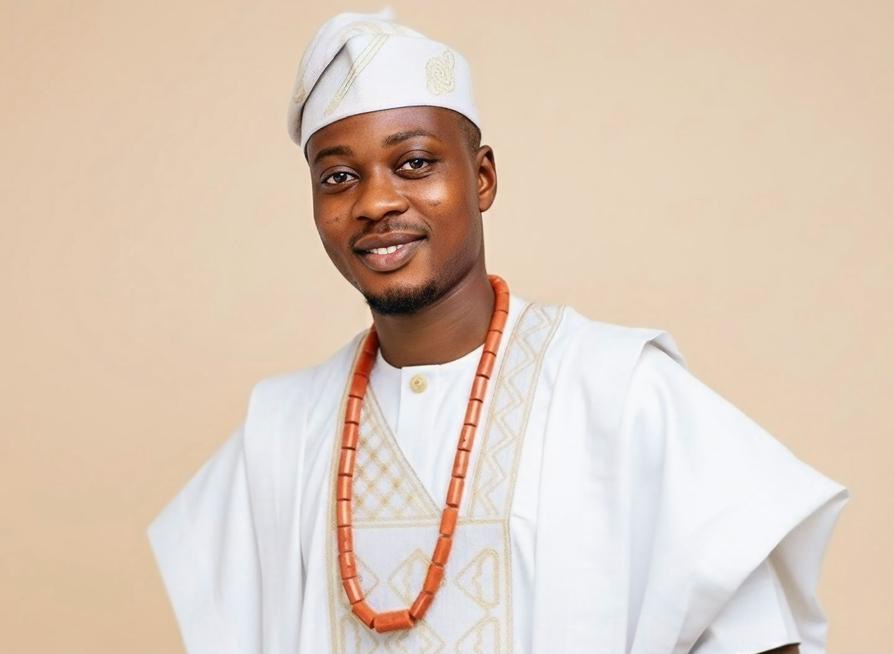Lifestyle
5 Low-Capital Businesses To Start In Nigeria

The global economy is deteriorating, and these days, we can no longer rely on readily available jobs. Many people are struggling to land the job of their dreams, despite graduating with good grades.
But that’s where owning a business comes in. The truth is that you can start your own business from scratch with little to no capital.
If you’re wondering which businesses you can start with little capital, here’s an article for you. Read on to find five brilliant business ideas that don’t require too much capital to start in Nigeria.
POS Business
This is one business that has become a mainstay in many parts of Nigeria. The best thing about this business is that you don’t need much to get started: just a POS machine and a small amount of capital. You can choose a location with high foot traffic for this purpose. Most Nigerians prefer using POS vendors over standing in long ATM queues. Hence, the a high demand in this market. Make the most of it today by starting small and scaling your business over time.
Social Media Management and Content Creation
Almost every business wants to be online, but many owners lack the time or skills to manage their pages. If you’re good at creating engaging posts, editing videos, or even just managing comments and DMs, you can offer social media management services.
You only need a smartphone, internet access, and a basic understanding of how different platforms work. As you grow, you can invest in better tools and even take online courses to refine your skills.
Home and Personal Cleaning Services
Cleanliness is a daily need, and many busy professionals are willing to pay for help keeping their homes or offices tidy. You can start small, offering basic cleaning services using the client’s own supplies.
With good word-of-mouth and dedication, you can expand into larger spaces, hire additional staff, or even start selling your own branded cleaning products down the line.
Tutoring or Skills Coaching
If you’re good at a subject (math, English, science) or have a specific skill (sewing, makeup, graphic design), you can offer tutorials. You don’t need a fancy location; you can teach from home, online, or go to your students’ homes.
Parents are always seeking reliable tutors, and young people are constantly looking for ways to upskill. By building a strong reputation, you can grow quickly and even transition to group classes or paid online courses.
Mobile Phone and Laptop Repairs
Gadgets break – a lot. If you have an interest in electronics, you can learn basic repair skills through free YouTube tutorials or by apprenticing informally. Start by helping friends and family fix minor issues; with time, you’ll build a loyal client base.
All you need to start are a few essential tools, which can be bought gradually, and a willingness to learn. Repairs don’t require a shop immediately; you can work from home or offer to go to customers’ homes.
Pulse.ng
Lifestyle
Ooni Congratulates Prince Adekanmbi As Oniko-Elect

The Permanent Chairman of the Southern Nigeria Traditional Rulers Council (SNTRC), Arole Oodua Olofin Adimula and the Natural Head of the Oduduwa race worldwide, the Ooni of Ife, Ooni Adeyeye Enitan Ogunwusi, CFR, Ojaja II has congratulated Prince Sunday Adekanmbi Olayode Asinloye II on his emergence as the Oniko-Elect of Ikolaje Idiriko Kingdom in Ipokia Local Government Area of Ogun State.
Prince Adekanmbi was elected and formally appointed as the Oniko-Elect on 10th February, 2026, by the Ikolaje Idiriko Council of Kingmakers, following due traditional processes and consultations in line with the customs of the ancient kingdom.
In a press statement issued on Monday and signed by the Director of Media and Public Affairs, Ooni’s Palace, Otunba Moses Olafare, the Ooni described the emergence of Prince Adekanmbi as a testament to divine favour and the collective will of his people.
According to the statement, the Ooni commended the kingmakers for conducting a peaceful and credible selection process, noting that the stability of traditional institutions remains vital to cultural preservation and grassroots development across Yorubaland.
The Ooni urged the Oniko-Elect to embrace humility, wisdom and inclusiveness in the discharge of his royal duties, stressing that the throne is a sacred trust that demands selfless service, integrity and unwavering commitment to the welfare of the people.
He further prayed for divine guidance, long life and a peaceful reign for Prince Adekanmbi, expressing confidence that his ascension would usher in a new era of unity, growth and prosperity for Ikolaje Idiriko Kingdom.
The Ooni also reaffirmed the importance of synergy among traditional rulers in Ogun State and beyond, emphasising the need for collaboration in promoting peace, security and socio-economic advancement within their respective domains.
Signed,
Otunba Moses Olafare,
Director, Media & Public Affairs,
Ooni’s Palace,
Ile-Ife.
Lifestyle
Watch: Trending Video Of Gen. Diya Crying, Begging Late General Sani Abacha Surfaces Online

Former Ogun State Leader, General Oladipo Diya, grovelling at General Sani Abacha’s feet, crying and begging the late Head Of State over the 1997 coup allegation.
Gen. Diya was crossed examined at the Human Rights Violation Commission (HRVIC) on the coup plan 1997 to overthrow Gen. Sanni Abacha. He bluntly denied the fact that he was part of the plan but he admitted he knew about the plan.
He further explained that he was afraid of being killed by the Coup Master Planner if he revealed the plan. He denied pleading with Gen. Sanni Abacha but was shocked to see the video where he truly knelt down before Gen. Sanni Abacha as tendered by the Lawyer.
Gen. Diya Oladipo then was appointed as Chief of Defense Staff. He was appointed Chief of General Staff in 1993 and Vice Chairman of the Provisional Ruling Council in 1994. In 1997 Diya and dissident soldiers in the military allegedly planned to overthrow the regime of Sani Abacha.
The alleged coup was uncovered by forces loyal to Abacha, and Diya and his cohorts were jailed. Diya was tried in a military tribunal and was given the death penalty. pon the untimely death of Abacha in 1998, Diya was pardoned by the late Head of State’s successor, Abdusalami Abubakar.
Below is a leaked video clip
Lifestyle
BREAKING!!! Panic As Tinubu Collapses And Fall In Turkey [VIDEO]

A video has emerged showing the moment President Bola Ahmed Tinubu momentarily tripped during his state visit to Turkey, according to Naija News.
Naija News reports that President Tinubu had on Monday arrived Ankara, the capital of Turkey for a state visit.
According to a statement by the Special Adviser to the President on Information and Strategy, Bayo Onanuga, the visit to Turkiye is aimed at deepening cooperation in key sectors including security, education, social development, innovation, and aviation.
Onanuga noted that the trip follows an earlier official visit to Nigeria by Turkish President Recep Tayyip Erdoğan between October 19 and 20, 2021, which reinforced diplomatic ties between Abuja and Ankara.
During President Tinubu’s visit, both countries are expected to hold strategic political and diplomatic engagements focused on shared interests in finance, communication, trade, and investment.
The programme will also feature meetings between senior government officials from both nations, alongside the signing of several memoranda of understanding (MoUs) covering scientific research, energy, technical cooperation, media and communications, military collaboration, and protocol.
A business forum will be held on the sidelines of the visit, bringing together Nigerian and Turkish investors to explore opportunities for mutual economic growth, the presidency noted.
Members of the President’s delegation participating in the bilateral engagements include the Minister of Foreign Affairs, Yusuf Tuggar; the Attorney General of the Federation and Minister of Justice, Lateef Fagbemi, SAN; the Minister of Defence, General Christopher Musa (rtd); and the Chairman of the House Committee on Defence, Jimi Benson.
Others on the entourage are the Minister of Women Affairs and Social Development, Hajiya Suleiman-Ibrahim; the Minister of Interior, Olubunmi Tunji-Ojo; the Minister of Culture and Creative Economy, Hannatu Musawa; the National Security Adviser, Malam Nuhu Ribadu; and the Director-General of the National Intelligence Agency, Mohammed Mohammed.
Culled from Naija News
-

 Politics2 days ago
Politics2 days agoAssembly Confirms Popular Redeemed Pastor As Deputy Governor
-

 Foreign2 days ago
Foreign2 days agoCabinet Reshuffle: President Sacks Finance Minister
-

 Business2 days ago
Business2 days agoJUST IN: 13 Banks May Shut Down In March As CBN Confirms 20 Safe For Recapitalisation Deadline
-

 Politics11 hours ago
Politics11 hours agoBREAKING: “Serial Disrespect” Sparks Drama As Senate Order Arrest Of Tinubu’s Appointee
-

 Politics11 hours ago
Politics11 hours agoOpposition Leaders Urge N’Assembly To Begin Fresh Electoral Act Amendment
-

 Opinion11 hours ago
Opinion11 hours agoEdo State To Spend N1billion On Armoured Car For Speaker, N4.6billion On Vehicles For Lawmakers




